with STEM™ CAREERS JOB KIT



Power the world and keep us connected



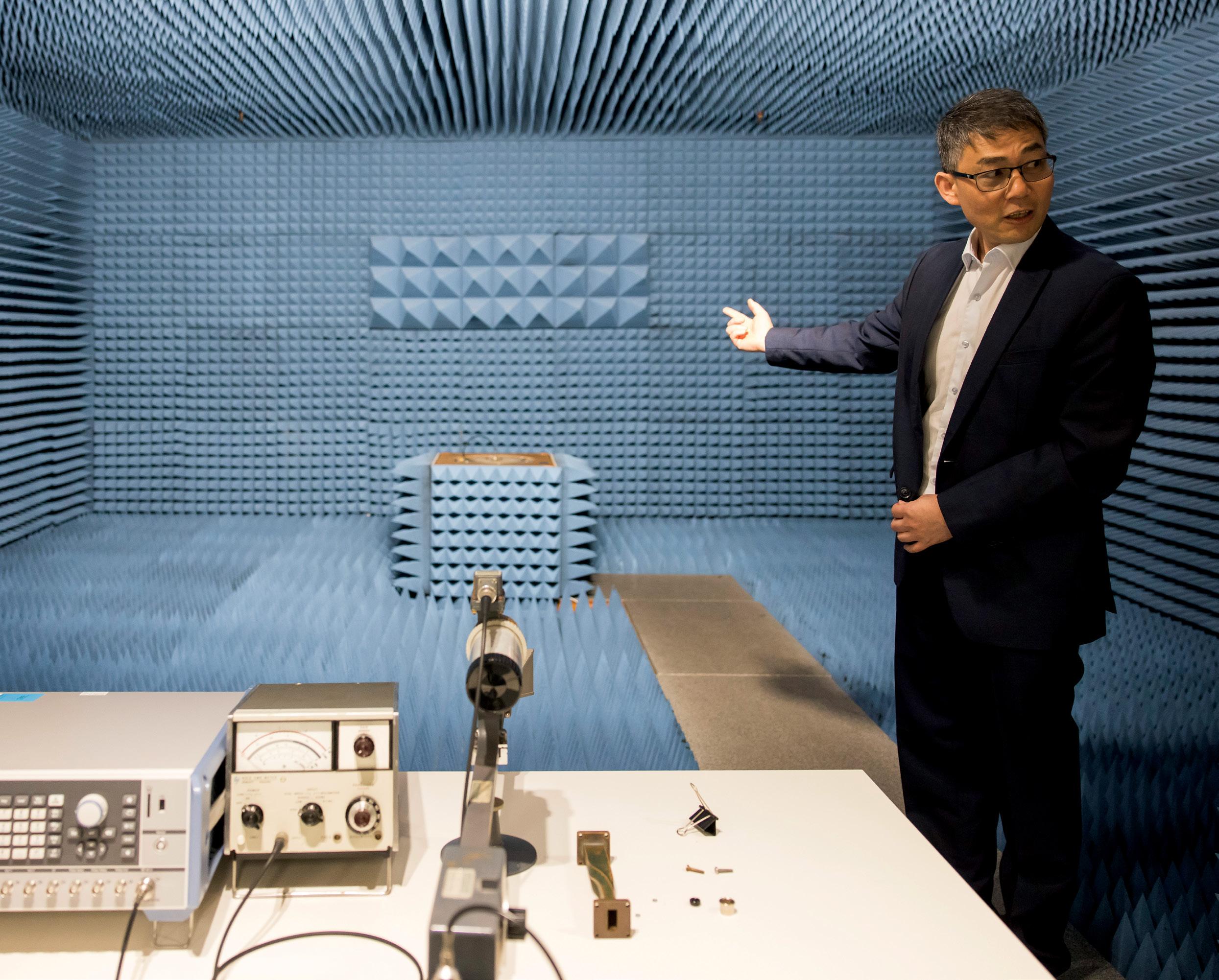
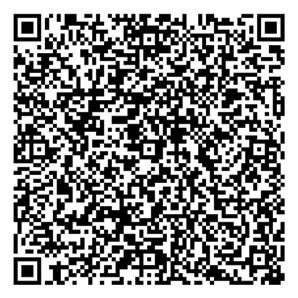
As electrical and telecommunications engineers, we design and build the systems that power and connect our world. The networks behind our digital lives and the global economy depend on us. Computers, microchips, and the internet need our expertise. So do robotics, sensors, and the smart devices all around us.
Choosing this degree opens doors to countless career pathways, from renewable energy and 6G networks to the Internet of Things and embedded AI. You could find yourself working in power systems, robotics, healthcare technologies, satellite communications, smart manufacturing or even space exploration.
As an electrical and telecommunications engineer, you’ll be trained to solve some of society’s most pressing challenges. How can we deliver stable, reliable power while integrating renewable energy into the grid? How do we ensure secure WiFi, satellite, and global communications? Every home, every business, every service relies on electricity and digital connectivity, and that makes your role essential to the future.
Jinhong Yuan Head of School, Professor UNSW School of Electrical Engineering and Telecommunications
At UNSW School of Electrical Engineering and Telecommunications we deliver an innovative, world-class education for the next generation of electrical and telecommunication engineers. Our programs equip you with cutting-edge knowledge, real-world problem-solving skills and the confidence to lead in a rapidly changing world. We’re also committed to diversity, welcoming more women, regional students and those who may never have imagined themselves as engineers.
As the largest and top electrical engineering school in Australia, we offer access to more than 165 teaching and research labs, where you’ll gain hands-on experience using the state-of-the-art facilities. You’ll learn from world-renowned researchers and engineers: global leaders who bring their expertise straight into the classroom. Many of our academics have also launched successful spin-off companies, reflecting our strong culture of innovation, entrepreneurship and impact.
If you love technology and innovation and want a career that makes a real difference, electrical engineering could be the path for you. It’s creative, challenging, in high demand and future-proof. The world needs more electrical and telecommunication engineers than ever. Plug in and power up your dream career.
Jinhong Yuan Head of School, Professor UNSW School of Electrical Engineering and Telecommunications
Connect with a career in electrical and telecommunications engineering
Welcome to the powerful world of electrical and telecommunications engineering. Electrical and telecommunication engineers work at all scales, from microchips to national power grids. That’s because our digital world is powered by electricity: mobile networks, satellites, the internet, smart homes, electric vehicles and a renewable-friendly electricity network all depend on electrical engineering. Choose this career, and you’ll be designing smarter ways to power our lives and keep us connected.
Demand for electrical engineering skills is growing fast, especially in energy/power grid, renewables,embeddedautomation, AI and telecoms.
Electrical engineering and telecommunications can feel like two parts of a parallel circuit: when it comes to choosing a career path, it’s easy to go either way.
Electrical engineer
Circuit design
Power systems
Electronics
Automated systems
Skills
Maths and physics
Attention to detail
Analytical thinking and problem solving
Teamwork and adaptability
AI
Tele communications engineer
Network design
Signal processing
Fibre optics / wireless
Radio frequency engineering

Switch on to careers in electrical engineering and telecommunications, like:
Electrical Design Engineer
design electrical systems for industrial processing and manufacturing plants
Power Systems
Engineer design and manage the energy grid as renewables surge
Telecommunications
Network Engineer develop mobile phone systems and internet infrastructure
Control Systems Engineer
automate factories and smart tech
Electronics Engineer design smart tools, sensors, gadgets and robotics
Renewable Energy Engineer work with sustainable solar, wind and battery systems
Satellite and Radar Engineer build space and defence systems
Cyber Security Engineer defend digital infrastructure from cyber crime
Embedded AI Engineer integrate AI algorithms for real-time decision-making in devices like drones and autonomous vehicles
Get a head start with these subjects: ✔ maths methods / extension 1 ✔ physics ✔ digital technologies
Simply the best UNSW’s engineering faculty consistently ranks as the best in Australia. You’ll get hands-on experience, access to global research, industry placements and flexible double degree options.

Choose electrical and telecommunications engineering if you want to:
Power the world from smartphones to solar farms
Solve real problems in tech, energy, health, defence and more
Work overseas enjoy job security and international opportunities
Make a difference build smarter, safer, more sustainable systems

Be future-ready from AI and VR to 6G and clean energy, electricity is vital to our digital lives
The world is racing to reach net zero carbon emissions – and electrical engineers are critical. Want a career that helps save the planet? You could:
✔ Design solar panels, wind farms and smart grids
✔ Plan the transmission and distribution of renewable power
✔ Help industries switch to electric systems
✔ Build the EV charging stations that power the future
✔ Make homes and cities more energy-efficient
✔ Optimise the use of renewable energy across our power grid
✔ Work in mining on underground power, autonomous vehicles and remote connectivity
To become an electrical or telecommunications engineer, check out UNSW’s School of Electrical Engineering and Telecommunications. Choose from Electrical engineering or Telecommunications engineering. Your degree will include working with:
• Electrical circuits
• Coding and digital systems
• Audio/Video/Image signal processing
• Communications Technologies
• Control systems
• Renewable power
• Embedded systems
• AI and machine learning systems
• Biomedical signal processing and applications
• Smart grid tech, and more!
In the bank
Let’s talk salary: Electrical engineer: Average $120,000 a year.Telecommunications engineer: Average $100,000 a year.
Source: Seek.com
Scholarships to watch
• UNSW Women in Engineering Scholarship
• UNSW Engineering Rural Scholarship
Find out more At scholarships.unsw.edu.au or scan
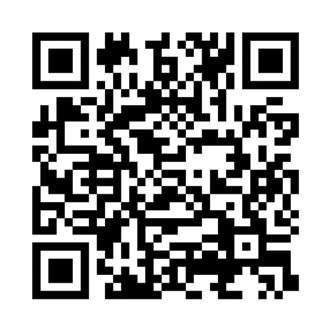
Electrical engineering student Luke Du Preez is contributing to more sustainable power
When he graduates, Luke Du Preez wants to use his skills to contribute to Australia’s shift toward a cleaner and smarter electricity network. “I’m hoping to work in the energy sector, focused on renewable energy and future power systems,” says the final year electrical engineering student.
Luke says his degree – a Bachelor of Engineering (Honours) (Electrical Engineering) at UNSW in Sydney – has given him the skills and experience to shape a more sustainable future.
“UNSW has a strong engineering culture and a great learning environment,” he says. “I’ve really enjoyed working with other students who are just as passionate about technology and problem solving. Being part of a team where you learn from each other has been one of the most valuable aspects of my experience.”
Electrical engineering feels like a meaningful way to apply my skills and help shape the future!”
Other highlights of his studies so far include hands-on technical projects (“building a home automation system and developing an autonomous trailer”) and internships. “I recently completed an internship with a company that engineers utility-scale solar farms,” says Luke.
“It was fascinating seeing all the skills and people involved with large solar projects and made me even more excited to be a part of the industry.”
Why choose electrical engineering? Luke says he has always been curious about how things work, plus he enjoyed maths and physics at high school. When it came to selecting a uni course, he wanted something with real-world impact.
“Electrical engineering struck a good balance between theory and practical problem-solving,” he says. “It felt like a field that could take me in many directions and keep me learning throughout my career.”
And Luke’s loving his choice. “The coursework is challenging, there’s a lot of support and encouragement from both students and staff… I’ve found the community here to be very motivating. There’s a lot happening in this space, and it feels like a meaningful way to apply my skills and help shape the future.”

Electrical engineering graduate Mahnee Przibilla turned a chance internship into her dream audio job
When Mahnee enrolled in a Bachelor of Electrical Engineering at UNSW, she had no idea it would lead to one of the coolest audio companies in the world.
“The degree gave me a strong foundation in digital signal processing and coding,” she says. “That ended up being very useful in my job.”
Mahnee’s time on campus at UNSW was about far more than just hitting up lectures. She got involved in engineering outreach projects that saw her travelling to regional areas and building her confidence along the way. “Any work experience or volunteering experience is valuable,” she says.
“It doesn’t have to be technical!”
Up there with one of her most game-changing undergrad moves, was interning at Dolby Laboratories while in final year – a gig that would lead to a full-time role after graduation.
Eventually, Mahnee was promoted to the entertainment group’s software engineer.
There, she really flexed her problem solving skills. “There was no typical day!” she says. “I’d go from prototyping new ideas, to testing code in the lab, to fine-tuning real-time audio systems.”
And the biggest pinch-me moment? “Hearing your code come to life in a cinema or even on the couch at home!”
Now she’s back where it all started at UNSW as a lab demonstrator, helping students get hands-on with the tech she started out with herself. And yep, she’s big on encouraging undergraduates to put their hand up for as many real-world opportunities as possible.
“Try internships, side projects, anything that sparks your curiosity,” she says. “Follow what genuinely excites you.”

7.30am
Get to work and check emails. Research the algorithm problem I’m working on and start development.
10am
Meet with the mapping solutions research team 12pm Lunchtime 1pm
Catch up with the quality assurance lead to brainstorm how to test my solution in the lab.
2pm
Write up code and unit tests
3pm
Chat with a senior engineer in the team to get their feedback.
3.30pm
Head home for the day.

I really enjoyed the problems I got to work on, they were challenging and cool.”
Start those circuits
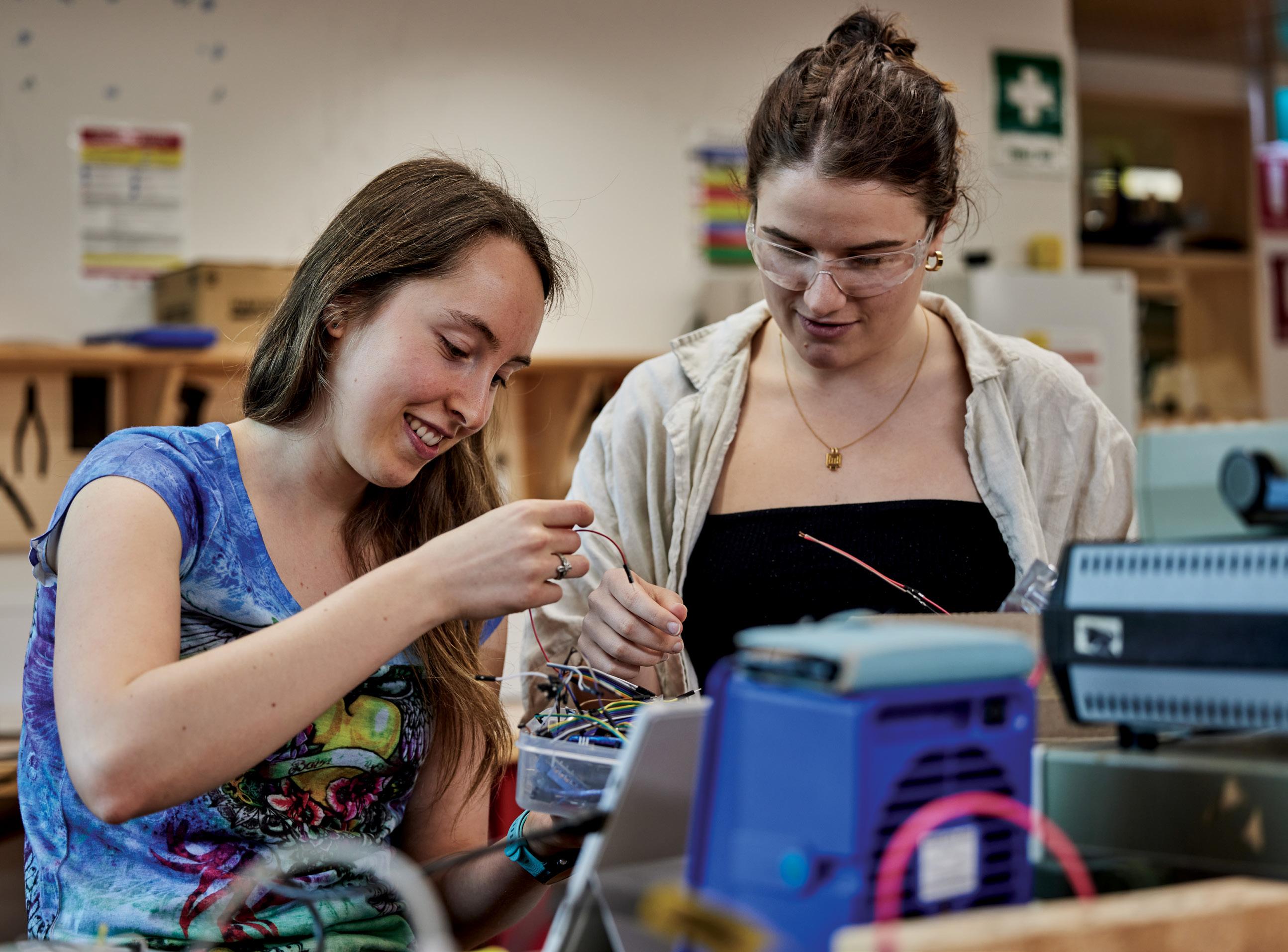
Match what you love with your career to flex your electrical and telecommunications engineering muscles:
• You’re curious about how things work -> Try solving puzzles
• You love technology and innovation -> Design some new gadgets
• You enjoy maths, physics, or computing -> Check out arduino kits

Check out a student society
Get involved
Tour the labs (YouTube)
Check out what it looks like inside UNSW’s electrical and telecommunication teaching labs.
Head to Antarctica (YouTube) Find out where your degree can take you with UNSW Electrical Engineering grad Robert Makepeace in Antarctica.
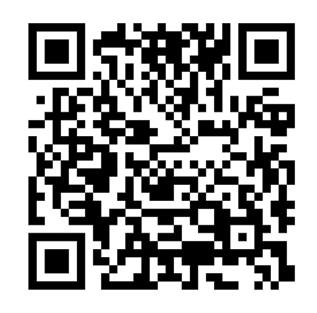
To read this job kit online, scan her
CONNECTED: Global projects need us to work together. Practise good teamwork, reach out to possible mentors, and keep ideas and relationships flowing.
ENERGETIC: You’ll be powering everything from smartphones to satellites. Get involved in projects and let your passion shine.
FULL OF POTENTIAL: The applications of electrical engineering are endless! Turn your bold ideas into real-world tech solutions that spark change.
• You think logically but also creatively -> Get started playing with circuits Want the job? Be like electrons:
ELSOC: UNSW’s Electrical Engineering and Telecommunications Society
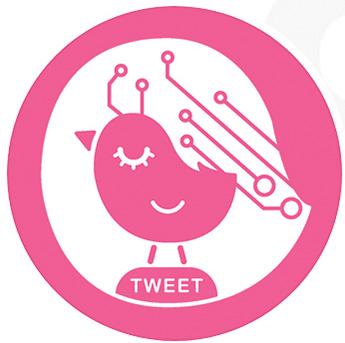
Stay up to date with what’s happening at this student-led society on Facebook, Insta, Discord and LinkedIn. Regular social events, free tutoring, info on internships and scholarships, plus special industry functions are all benefits of being one of over 1000 ELSOC members.
UNSW TWEET: The Women In Electrical Engineering and Telecommunications
Meet and hang with other women in UNSW’s School of Electrical Engineering and Telecommunications.
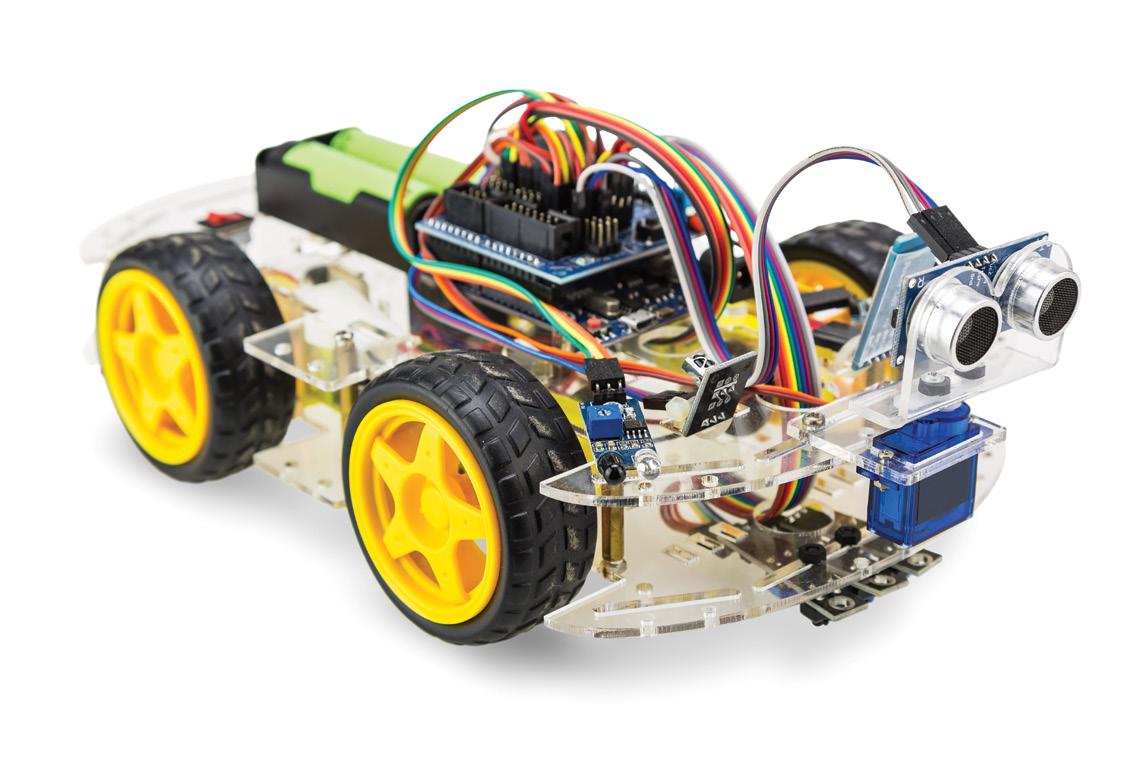
Try your hand with Arduino
Arduino kits are awesome DIY electronics kits perfect for hands-on learning. Check out UNSW’s guide to what’s inside an Arduino kit and get started today!